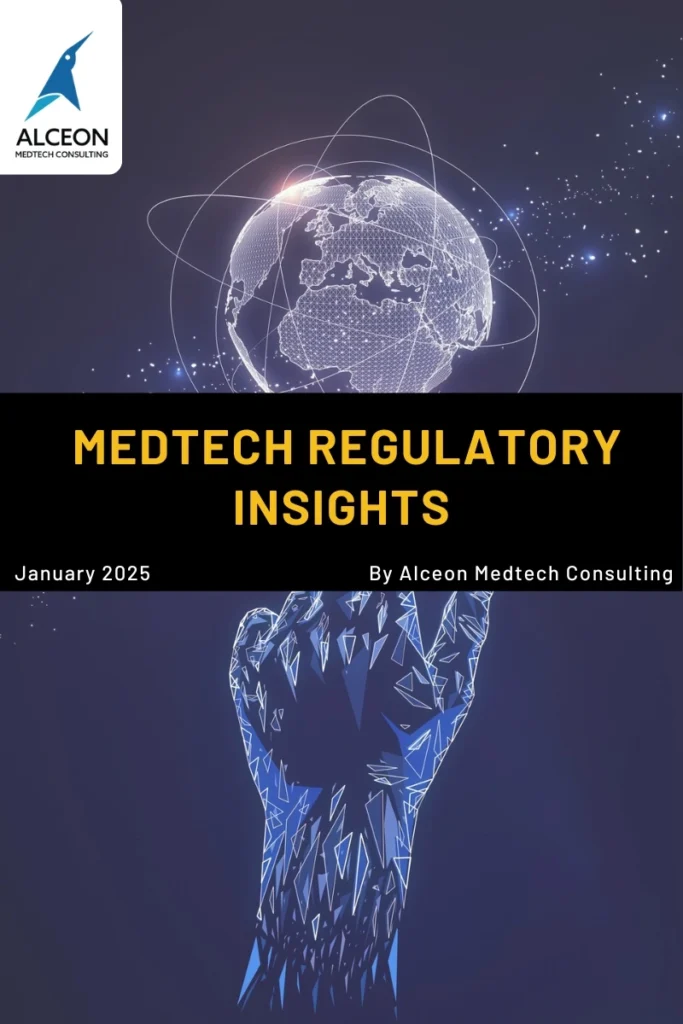
On 16 October 2024, the Medical Device Coordination Group (MDCG) published the revised guidance titled “Application of MDR Requirements to ‘Legacy Devices’ and Devices Placed on the Market Before 26 May 2021 in Accordance with Directives 90/385/EEC or 93/42/EEC.” This updated document reflects changes made by Regulation (EU) 2023/607, which amends Regulations (EU) 2017/745 and (EU) 2017/746.
The new regulation, published in March 2023, extends the transitional period for certain medical devices and in vitro diagnostic devices from the original deadline of 26 May 2024 to 31 December 2027/2028, (depending on the risk class).




The European Commission has released an updated version of the MDCG 2023-3 Rev.1 Questions and Answers on vigilance terms and concepts. This revised guidance provides essential clarifications for manufacturers of medical devices and in vitro diagnostic medical devices (IVDs)
regarding regulatory vigilance requirements. It broadens the scope to cover both the In Vitro Diagnostic Regulation (IVDR) and the Medical Device Regulation (MDR), incorporating updates relevant to both sets of regulations.



The FDA issued a warning letter to BD in November following an inspection of its San Diego facility, highlighting serious issues with its Pyxis dispensing system. BD, which acquired Carefusion in 2015, was cited for failing to comply with a 2007 consent decree regarding Alaris pumps. The FDA found over 92,000 complaints related to medication delivery delays due to system malfunctions, including life-threatening incidents. Inspectors also identified electrical hazards and cybersecurity vulnerabilities, with BD failing to investigate or report incidents promptly. The company faces a $28 million liability to address the non-compliance, including delayed reporting of serious injury complaints.



Endocrine disrupting substances (EDS) are chemicals that interfere with the body’s endocrine system, affecting hormone regulation and potentially leading to health issues like infertility, developmental disorders, or cancer. In the context of medical devices, materials used may leach EDS into the body, posing health risks. Regulatory frameworks, such as ISO 10993-18, guide the biological evaluation of medical devices, specifically addressing the potential release of harmful substances, including EDS.
This standard provides guidelines for assessing chemical leaching and their toxicity. Biological evaluation involves risk assessment, considering the device’s contact duration and the potential exposure to harmful chemicals. Risk assessment includes identifying potential EDS, evaluating their concentration, and conducting toxicological studies to determine the safety of materials. Comprehensive testing ensures that the device complies with safety standards, minimizing the risk of endocrine disruption.


On December 3, 2024, the U.S. Food and Drug Administration (FDA) issued the final guidance document titled “Marketing Submission Recommendations for a Predetermined Change Control Plan (PCCP) for Artificial Intelligence-Enabled Device Software Functions.” The guidance outlines recommendations for manufacturers seeking to include a PCCP in their marketing submissions for AI-enabled devices,aimed at facilitating iterative improvements while ensuring the continued safety and effectiveness of these devices.
The guidance emphasizes the following key components of a PCCP:
- A description of planned device modifications.
- The methodology for developing, validating, and implementing these modifications.
- An assessment of the impact of the modifications on the device’s performance and regulatory compliance.




On December 17, 2024, the U.S. Food and Drug Administration (FDA) issued minor updates to the final guidance titled “Global Unique Device Identification Database (GUDID) – Guidance for Industry and Food and Drug Administration Staff.” This update reflects upcoming changes to the Global Medical Device Nomenclature (GMDN) field in GUDID and other minor clarifications.



The European Commission is rolling out EUDAMED, a comprehensive IT system designed to improve transparency and coordination in the medical device sector. EUDAMED will collect, process, and share information about medical devices and related economic operators. The system includes six modules: Actor registration, Unique device identification (UDI) and device registration, Notified Bodies and certificates, Clinical investigations and performance studies, Vigilance and post-market surveillance, and Market surveillance. The amending Regulation (EU) 2024/1860, effective from July 9, 2024, aims to mitigate medical device shortages by extending transitional periods for certain in vitro diagnostic medical devices and implementing a gradual roll-out of EUDAMED. The first three modules are already available,

with two more expected in 2024 and the final module by Q3 2026. The regulation sets timelines for manufacturers and Notified Bodies to comply with the mandatory use of EUDAMED modules once they are declared functional.


The Bureau of Indian Standards (BIS) is prioritising development of standards for 214 critical medical devices, which are set for phased completion by December 2025. These devices, which include septal closure devices, plasma sterilizers, and phototherapy machines, are in line with the National Medical Device Policy, 2023 and have been identified in consultation with Department of Pharmaceuticals. The Bureau of Indian Standards (BIS) is prioritising development of standards for 214 critical medical devices,
which are set for phased completion by December 2025. These devices, which include septal closure devices, plasma sterilizers, and phototherapy machines, are in line with the National Medical Device Policy, 2023 and have been identified in consultation with Department of Pharmaceuticals. BIS, in a statement, said the national standards body is developing standards for innovative products such as therapeutic footwear, portable ramps, braille displays, and fall detectors, which support individuals with disabilities. BIS has published over 1,700 standards for the medical sector, covering specialities such as cardiology, neurology, orthopaedics, ophthalmology, and more. Of these, around 1,200 standards specifically focus on medical devices critical to healthcare. BIS standards in this sector ensure that Indian medical devices are safe, effective, and globally competitive.

